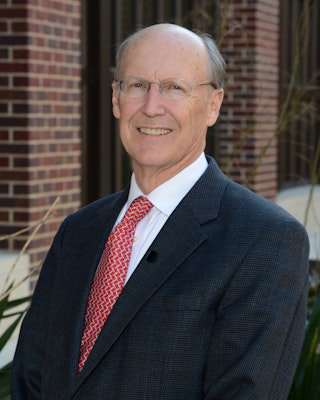Editor's Note
What compassionate conservatism means for the planet

As far back as Theodore Roosevelt’s passion for the natural world, a devoted line of conservatives has made the case for being good stewards of the world that we all have inherited. As part of their commitment to the environment, they have looked to the marketplace for innovative solutions.
In this edition of The Catalyst, our third of four on what compassionate conservatism means today, we take a deep look into how market-oriented principles apply to modern challenges to our planet. In our section on “The Case for Conservation,” you will hear from such leaders and experts as:
- Former First Lady Laura Bush recalling the origins of her conservationism and how it applies to preserving our oceans, restoring lands to their natural habitat, and understanding the effects of nature on our health;
- Sylvia Earle, National Geographic Explorer-in-Residence, and John Bridgeland, CEO of Civic Enterprises, making the case for conserving oceans so future generations can enjoy the water, oxygen, and natural resources they provide;
- Joni Carswell, president and CEO of Texan by Nature, detailing how businesses and conservation groups are collaborating in Texas;
- Renowned landscape architect Michael Van Valkenburgh explaining why investing in urban parks is good for business and the environment; and
- The Bush Institute’s Natalie Gonnella-Platts and Cullum Clark reporting how wildlife crime threatens species and fuels transnational crime.
Of course, climate change looms over many of our ecological challenges. In our section on “Market Solutions for the Environment,” you will hear from Bush Institute President and CEO Ken Hersh; Copenhagen Consensus Center President Bjorn Lomborg; Miami Mayor Francis Suarez; Presidential Leadership Scholar Irela Bagué; Northwestern Center for Water Research Director Aaron Packman; and SMU Economics Professor Klaus Desmet on how nations, cities, and states can adapt to a changing climate.
These experts focus on such strategies as developing new technologies; making sure buildings, drainage systems, and other infrastructure can adapt to higher seas; creating resilient water systems; and enacting trade and immigration policies that adapt to a changing climate.
This section also includes a range of ideas for a market-friendly environmentalism. Rep. Elise Stefanik (R-N.Y.), Dallas business executive and self-described Green Republican Trammell S. Crow, and American Conservation Coalition President and Founder Benji Backer discuss such concepts as using the tax code to spur environmental responsibility; pursuing better land management practices; and creating sustainable design practices in electric vehicles. They also explain what they are doing to turn their ideas into action.
We listen to your opinions, so please share yours on the ideas presented in this and other editions. The opinions in our journal do not necessarily represent those of the Bush Institute, but we share them as a catalyst for debate.
Letters to the Editor: Your Response to the Winter 2019 Breaking Free of Poverty Catalyst
Re: Sen. Tim Scott’s Using the Marketplace to Revitalize Overlooked Communities
I am excited to see the impact of these opportunity zones on the communities. I am not an investor but would possibly want to know how to get involved in a designated zone in Georgia. I am thankful to read about compassionate conservatism.
Ginger Tankersley,
Lilburn, Georgia
Re: Sen. Tim Scott’s Using the Marketplace to Revitalize Overlooked Communities
I admire his personal success, business acumen, and vision for people caught in poverty. But I would feel better if he focused instead on egalitarian, quality public school education.
Galen Humphrey,
Conway, South Carolina
Re: Winter 2018 Catalyst Short Essays on What Are We So Afraid of When It Comes to Immigration?
I really enjoyed reading the short essays on immigration. I am an immigrant who is now a citizen thanks to my military service. It is very important for Americans to hear stories such as the ones you have published, as well as mine. Not all immigrants are here to take over jobs, eat away at the benefits paid by taxpayers, or commit crimes.
Juan Carlos Hernandez,
Camarillo, California
The Catalyst believes that ideas matter. We aim to stimulate debate on the most important issues of the day, featuring a range of arguments that are constructive, high-minded, and share our core values of freedom, opportunity, accountability, and compassion. To that end, we seek out ideas that may challenge us, and the authors’ views presented here are their own; The Catalyst does not endorse any particular policy, politician, or party.

